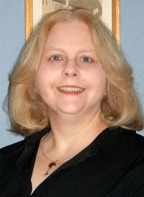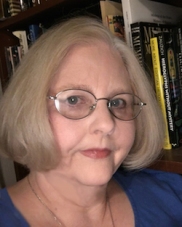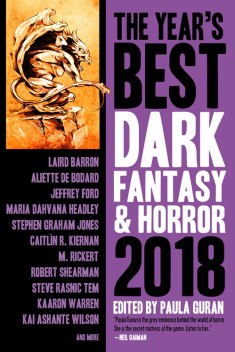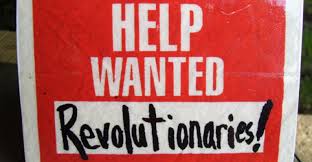If you don’t know who Paua Guran is, you aren’t reading enough Horror…
Guran has been one of the three major contemporary editorial contributors to the genre, most recognized for her excellent work on the Prime Books annual “Best of ” collection, The Year’s Best Dark Fantasy and Horror, but also for her prolific work on countless anthologies that for decades have served up some of the more interesting and innovative Horror anthologies – often with a delicious side of Dark Fantasy and fairy tale influence.
She is, by far, my favorite American Horror editor. And in times when it is increasingly hard to get our hands on British Horror, her collections have offered a complimentary creative contrast to Ellen Datlow, whose influence continues to showcase better constructed Horror with Literary inclinations, but without that feel of adventure. Guran has been the “heart” of the genre, going for the emotional center.
In her latest annual Best collection for 2018—her forty fifth anthology – she announces in the About the Editor note that “after more than a decade of full-time editing, she’s now freelancing..” having downsized her life and her work to more relaxed levels with “mixed feelings.” (Year’s 511)
She is not alone in those feelings… American Horror is taking a hit.
And I have one thing to say:
Noooooooooooooooo!!!!!

Say It Isn’t So…
The rise of the anthology in Horror fiction has done several very important things: it has provided a forum not unlike early Horror magazines in which readers have a chance to “discover” writers they could not find anywhere else, to “discover” new writers in the genre, and to get a feel for what Horror writers are writing about. But they also have provided a unique opportunity to understand what the field of editing is all about – not the sweat and grit of proof-reading or slush-pile skiing, but the kind of work editors used to do – back when they discovered writers and nurtured them a bit, guiding them into other publishing and awards territory – in essence, contributing to the genre an editorial style – not so much as a star-maker, but as a representative of chosen stories, subgenres, and “accent”…
In the Olden Days, readers read books curated by certain editors. Editors had fan-bases. We seem to have lost that connection with editors. And it is a shame.
Datlow, I think, will always be underestimated by readers for the work she has done for the genre – because her anthologies carry less obvious “voice” and because of her own preference for what I see as literary artistry. But Guran will be equally obviously missed for the solid sense of presence and voice in her selections. Where Datlow to me represents refined technique, Guran is just plain fun. With Datlow, I see something of the intended editorial future of the genre; with Guran I see the pulp roots of yesteryear bleeding through. Between them both, we had a fine balancing act doling out tradition and inspiring different aspects of our Horror future.
Now it feels like the wheels are coming off…
We are losing a highly representative voice of “accessible” and “achievable” Horror goals, leaving some of us to feel we are being refined right out of our own genre.

Guran has been around the genre for some time…quietly rattling the cages of some pretty awesome beasts. According to http://paulaguran.com/about/:
“In an earlier life she produced DarkEcho, a weekly email newsletter for horror writers and others, for over six years (1994-2001) and was recognized with two unprecedented back-to-back Bram Stoker Awards for Nonfiction from the Horror Writers Association (1998 and 1999) as well as an International Horror Guild Award (1999) and a World Fantasy nomination (1997). She began producing the horror portion of the pioneering professional Web publication OMNI Online in 1996 and became the Literature Editor of Universal Studios’ HorrorOnline in October 1998. (Many of the now-outdated interviews, articles, and reviews she produced from 1995-2006 are archived on DarkEcho website—which she will, someday, cleanup and sort out—she hopes.)”
Do you realize what an awesome resume that is? All before she became the Senior Editor for Prime Books…
Yet there is more to Guran’s impact upon the Horror genre.
Ultimately, a major part of her legacy-in-progress will be her own contribution to the “shading” and gender-blending of Horror. She has been integral along with Datlow in the decisive attempt to bring more diversity to the ranks of published authors. Between the two of them, we see far more women being published and being awarded in the genre, far more minority voices, helping to eradicate that myth that only white males write great Horror.
But we have so much farther to go… I hope Guran has an understudy…. somewhere out there…
Someone who will rise in the genre to become the kind of editor she has been – one with eyes in the back of her head and at least one of them focused sharply on the future.
But editing is not something that publishers seem interested in grooming. They seem product-focused, not genre-focused… seeking what sells, not what shapes.
And our educational system is conducting itself in very similar ways. Editing tends to be one course in all of the university writing or classics undergraduate major courses, too-often about nonfiction, and it often isn’t required. No one talks about how to edit fiction. No one teaches it. No one really writes about it.
In fact, the only way one can learn it is by teaching oneself – reading other writers’ work, reading how-to’s written for writers on how to “fix” flawed fiction, reading essays on the emotional and etheric experience of editing. Nothing is out there offering a blow-by-blow instruction or introduction. And there are just not enough established and reputable publications out there who will hire an editor-wannabe for the purpose of mentoring into a powerhouse editor of a single genre.
This is slipshod and irresponsible. And it is all we have. The field of editing has become crowded with MFA folk who know no more about editing than I do, who are also writers who would rather be writing than editing, who “fall into” editing opportunities without any particular credentials or training, and often who appear to be some kind of network hire, a “connected” person instead of a proven editorial savant.
How can we get great editors if we are treating them the same way we are treating writers in our genre? Staring out over an open field of wildflowers with a glassy-eyed shrug, and deciding to judge only those who make it into a special-delivered vase on our desk?
We need editors who are trained….Like it needs to be its own DEGREE…. supported by study in classic Literature, Literary Criticism, and training in Craft.
We also need more flexibility in how academics look at the genres. Sure, genre writing is rarely Literary. But that doesn’t mean it shouldn’t be capably executed or that its editors should not be very well-read in the genre they intend to edit.
Between training writers and training editors in mechanical basics and academic Criticism in and around the foundation of Classic Literature – how can we help but grow a few Literary writers and better readers? How can we miss creating better editors who create better books, which create better sales and better Publishers?

Eclectic is Good. And It is Necessary.
As much as an editor like Datlow is to be appreciated, editors like Paula Guran become beloved. The only predictable thing in her anthologies is the unpredictable… There will be tales that are offbeat, unique in protagonist or setting… clear roots to the better traditions of Horror no matter how campy or Literary. And that is important.
Eclectic is good.
Eclectic is necessary.
And we cannot let our Establishment ever forget that, because in the rush to Literary style we have started to lose some serious essence.
It has often felt as though in our genre we are so focused on elevating our Craft, of impressing dead Literary Critics that we are totally forgetting the fan out there – the reader of Horror who wants some fun along with that technique, who wants more than anything to be scared – if only for a moment.
Everything in Horror does not have to be perfect.
Perfection is what we aspire to…It is for the Poes and Lovecrafts among us… even if those unknown writers are outside the field of current favoritism, as Poe and Lovecraft once were.
We cannot and should not denigrate writers of lesser genre fiction – those reckless storytellers of urban myth and trite, overused plots, nor those writers whose voices speak from outside our comfortable norm. From those places we might just see a writer take off on jets of inspiration and innovation. And it is those writers who need to read the work of other chance-takers. It is those writers who need to feel the recoil when the patterns of poor technique or overdone plots become obvious – but like with new and would-be editors – who can’t if they don’t read enough of all of that lesser-regarded writing for creative comparison to the Greats of the genre – past, present, or future…
This is what an editor like Guran offers: diversity from the roots up: from who is writing to what is being written about…
For example, in the 2018 Year’s Best Dark Fantasy & Horror are works and writers such as “Welcome to Your Authentic Indian Experience” by Rebecca Roanhorse, a Pueblo/African American Writer…”The Lamentation of Their Women” by Kai Ashante Wilson, African American writer, “Little Digs” by Lisa L. Hannett, Australian National Science Fiction Award Winner…”Moon, and Memory, and Muchness” by Katherine Vaz, a Portuguese- American writer. This is genre diversity long over-due.
Guran’s anthologies remind me of the old Weekly Readers we used to get in elementary school – along with the book selections at the end that shaped the reading I do today. Her work is that “box of chocolates”… in no way the “Best” of Horror as much as it is the Year’s Great Horror Stories… Tales to inspire, to unsettle, to tease…
I slipped into a funk when I read Paula Guran’s note about pulling back from her editorial proliference… Now what will I do? I thought….maybe I should go back and collect the anthologies I missed that she edited… prolong the withdrawal a little longer…
I realize she is still working… at reduced volume, at reduced pace…
But I think this is a canary -in- the-coal-mine moment for Horror…
We need to do something, because how long we have Datlow is another pending question….And then what?
What, Horror gods, will we do to stop the editorial hemorrhaging? Because great editors are as rare as great writers: they deserve discovery and mentoring… They deserve educating.
How do we fix this without making an actual effort to do so? And how do we look our fans in the eye if we just stand around blowing up inflatable monsters instead of making a decisive effort to properly seat our genre at the academic table at just the moment when Literary Critics are beginning their work to define and establish our genre as the legitimate Literary entity we have all long known it is?
Paula Guran is scooching toward retirement. Fans like me are screaming into pillows. We better do something…before we lose everything we have worked for…
We better start caring about how great editors are made. Because I know we have other editors editing out there, but we all come with expiration dates. And for fans like me, they will never be Paula Guran.

“Interested in writing and/or editing? Here’s a link to a unique Editors’ Roundtable that features general and specific comments on a promising story from some of the most respected editors in the field: Paula Guran, Ellen Datlow, Gardner Dozois, Liz Gorinsky, James Patrick Kelly, Nick Mamatas, Ann VanderMeer, and Sheila Williams.” http://paulaguran.com/

K.C., thank you for another excellent and important post on horror!
LikeLiked by 2 people
You’re welcome, Professor! We often forget the impact editors can have on the genre…a point driven home when I think about the vacuum she’s going to leave….
LikeLiked by 2 people
Reblogged this on charles french words reading and writing and commented:
Here is another excellent post on horror from K.C. Redding-Gonzalez!
LikeLiked by 2 people
Thank you for reblogging!
LikeLiked by 2 people
Another brilliant article, KC. Thank you.
LikeLike
And thank you for reading it! I keep wondering at what point I am rambling….
LikeLiked by 1 person
There are MANY heroes in the writing world and the editor of certain genres (like horror) is a hero yet invisible to most. You write like an editor KC – maybe you need to look at this editor role seriously for your future. (But keep writing your own work!) (and it wouldn’t hurt to contact these women and talk)
LikeLiked by 1 person
Thank you Lara! I am trying to learn fiction editing with Horror specifically in mind… simply because I think it makes me a better writer, for what THAT is worth! The future is wide open…
LikeLiked by 1 person
Reblogged this on Where Genres Collide.
LikeLiked by 1 person
Thank you so much! I hope more people pay attention to the contributions of editors in general, since so few rise to the top of their genres, but they shape those genres nonetheless!
LikeLiked by 1 person
Yes, editors are very important!
LikeLiked by 1 person
Just ran across this:-) Thank you! However, I don’t particularly WANT to retire. Prime was unusual, maybe unique, in even having a full-time editor. They no longer needed me. It’s been over a year now and I’ve yet to find anything except some freelance work and fulfilling established contracts for two anthologies. I’d love to keep editing, but I need a job. Again, appreciate the appreciation. Good luck with the blog.
LikeLiked by 1 person
Hi Paula! I really mean it when I say I have appreciated your editorial hand on the Horror tiller! And thank you for stopping by to make my day!
Because I work as a bookseller for a major chain bookstore, I think I can say with some authority that the publishers’ collective decision to “rebrand” Horror and Dark Fantasy as everything else BUT Horror has cost serious sales. Readers cannot find authors, do not think to search for editors, and default to classic collections and the King section thinking nothing else is being published. The subsequent slump in sales results in publishers choosing fewer titles and fewer new authors, who are then forced to reconsider self-publishing or changing to YA fiction…Then to say that a publisher like Prime does not have enough work for an editor of your capacity and talent is disheartening to say the least — because I see Horror fans every day looking for new Horror to read… and I cannot educate them fast enough. There needs to be better planning by publishers. If we cannot capitalize on the strong popularity of Horror films right now, there is something wrong at the top — and it isn’t editors, but lack of MORE of them as well as lack of publishing options.
I do believe writers, fans, editors, and Critics need to unite to communicate their demands for formats and platforms — in the same way we got the 1970’s and 80s Boom — cheap and accessible formats designed to be easily found and easily afforded. We need more Dark Echo types of platforms, cheap literary magazines, mass market paperback Horror — and better education in fiction writing and specifically within the genre… It’s why online formats like CreepyPasta do so well despite the Craft issues — readers want Horror. And right now the only place it’s dead is in the publisher’s minds…A pity really, because we have and need editors like yourself. Thank you for all you have done and continue to do… YOUR fans are rooting for you!
LikeLike